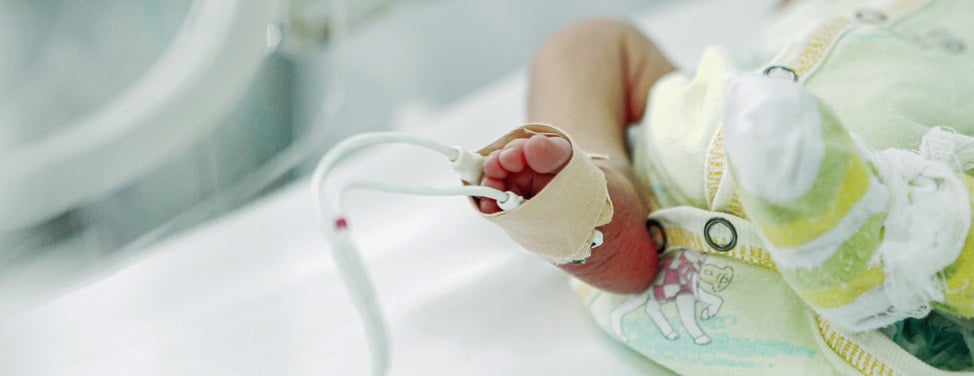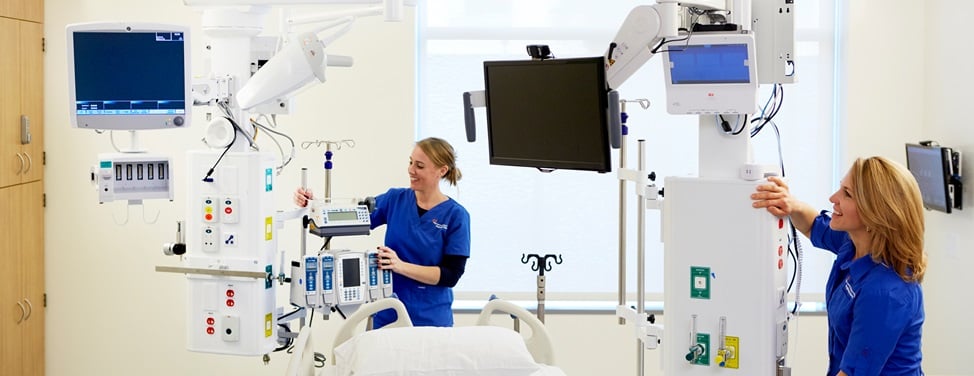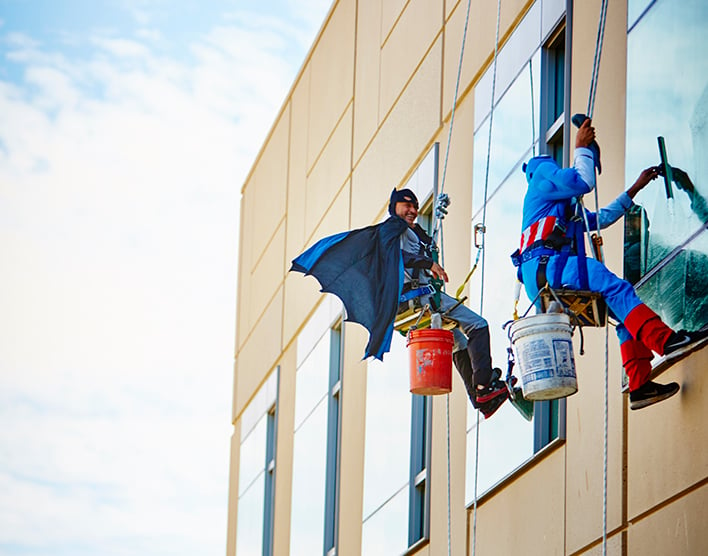As a parent, you have an important role in your baby's care and recovery in the Intensive Care Nursery at UCSF Benioff Children's Hospital. Here are some suggestions to help you feel more involved and comfortable.
- As soon as you are ready, talk to and touch your baby. It is soothing for babies to feel a gentle touch or hear a soft, loving voice. Your baby's nurse will answer your questions and provide support, especially during your first few visits.
- Initially, taking your baby's temperature and changing diapers are some of the ways you can participate in your baby's care. Your baby's nurse is always available to help.
- The more you interact with your baby, the sooner you will understand his or her cues. Your baby's nurse will show you how to calm your baby, using positions that are safe and comforting.
- When your baby is ready, you may breastfeed or bottle feed your baby. If your baby is not ready to breastfeed, you can pump and store your breast milk.
- Hold your baby as soon as his or her condition is stable. Ask your nurse to explain skin-to-skin holding for premature babies.
- Feel free to ask questions and attend the daily medical rounds to hear the discussion of your baby's care. To ensure medical confidentiality, you will be asked to leave during discussions about the conditions of other babies in the nursery. You also may be asked to leave if special medical procedures must be performed.
- Ask for a family meeting with your health care team if you have questions regarding your baby's care. Your social worker or nurse can help you arrange a conference with your baby's doctors.
- Visit as much as possible. If you're unable to visit, call daily to talk to your baby's nurse. Get to know your social worker.
- Participate in parent support groups, discharge planning classes and the "breastfeeding tea," a support group for breastfeeding mothers. These programs are offered weekly.
We believe that parents who learn to care for their baby in the hospital are better able to care for their babies at home. Each time you visit your baby in the nursery, you are developing a positive, nurturing relationship and becoming an expert on your baby's care.
Sights and Sounds
The first time you visit the Intensive Care Nursery, you may be overwhelmed. There may be a lot of noise, light, activity and beeping equipment. Your baby may seem small and helpless and you may feel the same. You may meet many nurses, doctors and other personnel.
Here is some information about what you may see in the nursery:
- Special Beds — Your baby may be in an "open warmer" bed while needing frequent care and procedures. When stable, your baby will be placed in a crib or isolette, also called an incubator. The warm, dark and quiet environment of the isolette allows premature infants to conserve energy.
- Monitors — Every baby in the nursery will have his or her heart and respiratory rates monitored continuously. Your baby will have small pads, called leads, on the chest and abdomen. Other monitors measure oxygen and carbon dioxide in your baby's blood. You may hear many alarms, but they usually don't indicate an emergency. The nurse will check to ensure everything is okay.
- Ventilators — The ventilator breathes for the baby through a small tube, called the endotracheal tube, that is inserted in the trachea and secured to the baby's cheeks. The ventilator delivers air and oxygen if needed to your baby's lungs. This keeps the lungs from collapsing if your baby is too tired or sick to breathe on his or her own. The ventilator will give your baby a set amount of breaths each minute and supports the breaths he or she takes. The amount of oxygen, pressure and the breath rate will be adjusted depending on your baby's needs. If your baby is able to breathe but needs extra oxygen, he or she may receive it through flexible prongs in his nose or by a plastic dome over his head.
- IV Lines — Your baby may have intravenous (IV) lines for fluids, medications and nutrition. The IV lines may be in your baby's arms, legs, umbilical cord or scalp. IVs on the scalp don't hurt the brain in any way. We may shave your baby's hair to put an IV line in the scalp. We try to save the hair for you and, of course, it will grow back.
- Tests — Most tests are done at your baby's bedside. Some examples are X-rays to take pictures of the lungs or stomach, sonograms to check the abdomen or brain and echocardiograms to check the heart. These tests are not painful. In addition, blood may be drawn to check for infection, to monitor electrolyte levels, such as sodium and potassium levels, and to assess your baby's lung function. All babies have their hearing checked before being discharged.
Support Services
The following services are available to insure that parents and family members are fully informed and to help with emotional, financial and family concerns:
- Chaplain Service — Spiritual care can be a source of comfort. Chaplains are available at all times. A staff member can help you contact this service.
- Parent Support Group — The parent support group is for parents who have babies in the Intensive Care Nursery. It is facilitated by a nurse and meets every Tuesday afternoon. This is an opportunity for parents to meet and discuss their experiences.
- Social Services — All families are contacted by a social worker who will answer their questions, help solve family-related problems such as temporary housing and financial concerns, and provide emotional support.
- Volunteer Baby Cuddlers — Our "cuddlers" are a wonderful group of volunteers who are specially trained to hold and soothe newborns.
In late October, we host an annual nursery reunion of our "graduates" and their families. Please come back to visit.

































